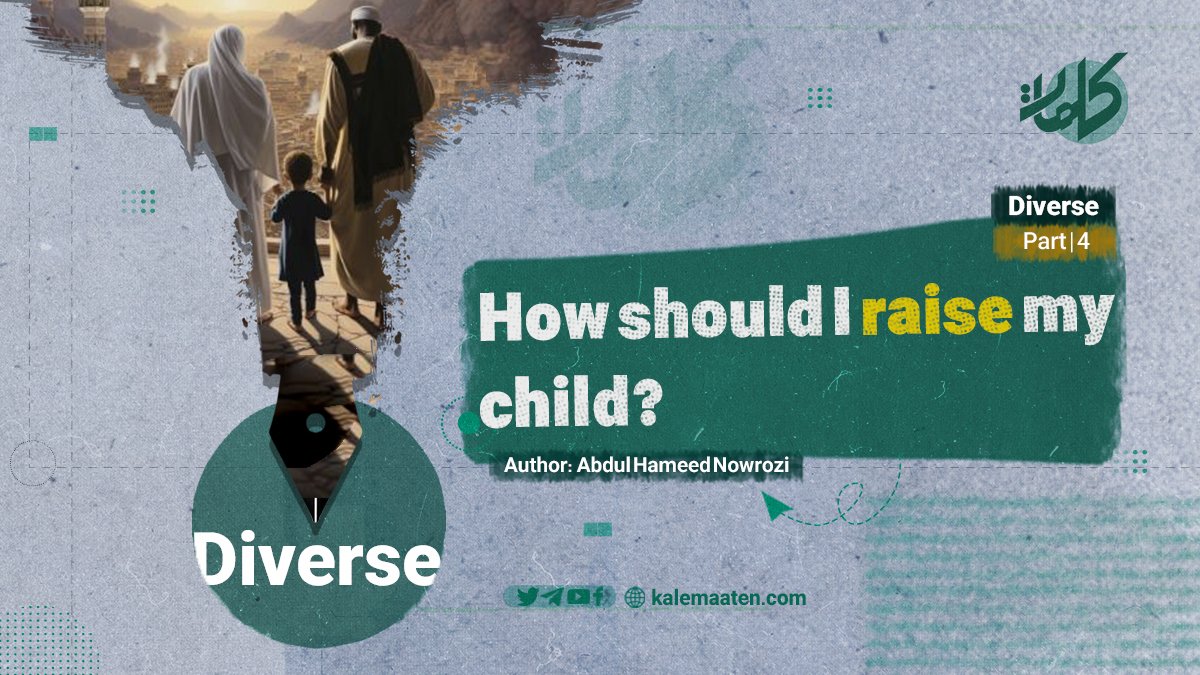
Author: Abdul Hameed Nowrozi
How Should I raise my child? (Part Four)
Attention to Children After the Age of Six
At this stage, a child’s ability to learn systematically improves significantly. They are more receptive to reasoning and explanations and bond better with peers through play. In summary, their comprehension and skill-learning abilities increase, making it possible to guide them more directly. This period is one of the most important stages for teaching and nurturing children. Here, we will outline key aspects that educators should pay special attention to during this phase:
Teaching a Simple Understanding of God to Children
Introduce God to the child in a manner that aligns with their understanding, intellect, and mental capacity. It is enough for the child to know that God is One, Unique, and the Creator of the heavens, the earth, humans, animals, trees, streams, and everything else. Educators should seize opportunities to ask questions that spark awareness of God’s greatness. For instance, during a trip to a garden or a natural setting, they might ask, “Who created the water, rivers, trees, earth, and other things?” This helps the child recognize God’s magnificence and understand His power.
Teach them love and gratitude toward God by pointing out the blessings He has bestowed upon them, such as their hearing, sight, intellect, ability to move, and provisions for them and their family. Encourage them to appreciate these blessings and express thankfulness.
Teaching Clear Rules of Halal and Haram
Children should learn about modesty, performing ablution, rules of cleanliness, and how to perform prayers. They should also be taught to avoid prohibited acts such as lying, gossiping, and looking at inappropriate things.
In essence, children should be guided to follow the same commands and prohibitions required of adults so they become accustomed to these practices. Efforts should also be made to impart knowledge, as Sufyan Thawri (may Allah have mercy on him) said: “It is obligatory for a man to compel his child to seek knowledge because he is responsible for this and will be questioned about it on the Day of Judgment.”
Teaching the Recitation of the Holy Quran
The Quran is the only unchanging and firmly established guide that is protected from any falsehood. Teaching children the proper recitation of the Quran and encouraging them to memorize it, or at least large portions of it, brings immense blessings.
Parents should strive to enroll their child in Quran memorization schools or programs. If this is not possible, they should encourage participation in short-term Quran memorization circles. Learning the Quran guides children to the straight path and brings abundant rewards for their parents.
The Prophet (peace be upon him) said: “Whoever says ‘Subhan Allah al-Azim,’ a tree is planted for them in Paradise. Whoever recites the Quran, completes it, and acts upon it, their parents will be adorned with a crown of light on the Day of Judgment. Its brightness will surpass the brightness of the sun in worldly homes. What then do you think of the person who acts upon it?”
The pious predecessors paid special attention to teaching and encouraging their children to memorize the Quran. One example is Sheikh Yasin bin Yusuf al-Maghribi, who said about Imam Nawawi (may Allah have mercy on him): “I saw him in Nawa when he was 10 years old. The other children criticized him for not playing with them, but he would flee from them, crying, and reciting the Quran. Even though his father had placed him in a shop to sell goods, this did not stop him from reciting the Quran. I took him to his teacher and recommended him, saying, ‘I hope he will become the most knowledgeable and pious man of his time, benefiting others.’ His teacher asked if I was an astrologer. I said, ‘No, but God inspired me to say this.’ He completed the Quran before reaching puberty.”
Continues…


